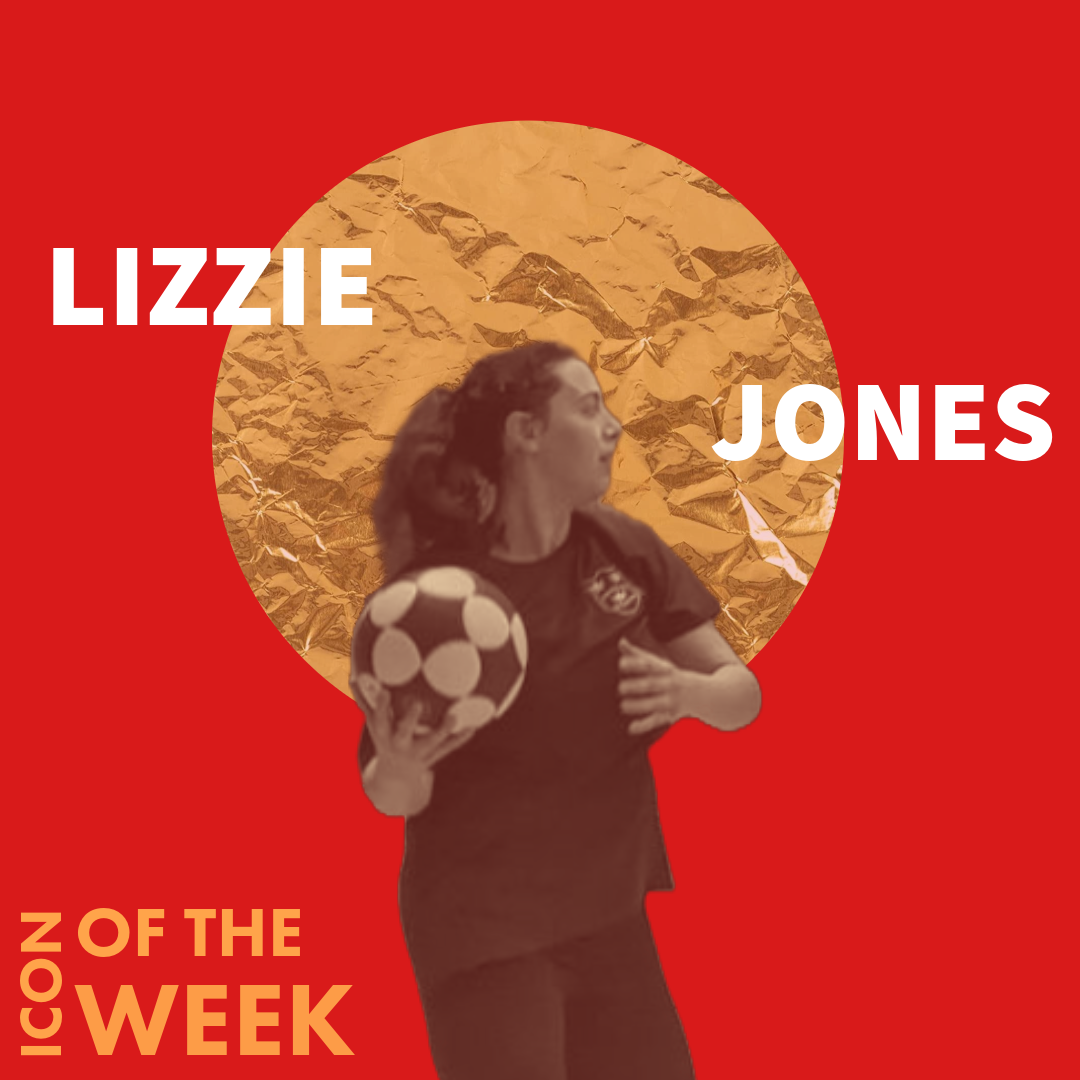
Icon of the Week: Lizzie Jones, Captain of Oxford University Korfball Club

By the time I arrived at Freshers’ Fair they were handing out the last of the tote bags. After rushing past the stalls for the Oxford Finance Society (the bad guys), the Oxford Climate Society (the good guys), and the Oxford Sustainable Finance Society (God knows what), it was becoming clear to me that, in planning to “have a quick look around at the end”, I had underestimated the scale of the operation. By the time I left they had run out of Domino’s pizzas. How anyone can end up choosing anything at University, then, given all that is on offer, must involve a heavy dose of randomness. How anyone might end up choosing korfball, of all things—that’s what I want to find out.
“I enjoy playing sport, but I’m not very competitive, or certainly wasn’t before I went to uni.” This is the answer that Lizzie Jones, current captain of Oxford University Korfball Club’s first team, gave me, now two terms into the role whose first big day was on the other side of one of those many stalls. “I knew joining sports which lots of people play at school, was gonna be a very different atmosphere. So I was looking for a sport that was open to people playing quite casually, but where the club was also willing to teach new people. I came across korfball because a few people I lived with in halls played it. I went along to one session and I just instantly was like, that’s the vibe I’ve been looking for.”
This is a theme that recurs throughout our conversation. Korfball is a sport which prides itself on its friendliness and inclusivity. Lizzie recounts an early experience of the sport which she has tried to emulate since: “I went to a social very early on and people actually made an effort to remember my name, even though there were a lot of freshers. I just thought it was a club that really wants people to join, rather than thinking ‘well if you’re not already on the team it doesn’t really matter.’”
In many ways, this attitude is already baked into the rules of the sport. Lizzie explained them like this: “Korfball is a mixed gender version of basketball and netball, where you have eight players on a team and you split the court into two halves of attacking and defending, splitting the genders equally as well. After every two goals, if you were attacking, you are now defending, and vice versa. One of the rule that makes it unique is that if you have a defender within an arm’s length and between you and the post, you can’t shoot, even if you could shoot over them. So it doesn’t matter how tall you are.” It’s easy to see how such rules lead to the kind of atmosphere she was looking for. Unlike in basketball, players are not allowed to dribble the ball, which means that attacking chances can only come from passing the ball. Unlike in netball, each players must take a turn in each position, bringing a further emphasis on all-round teams. Perhaps more than in any other sport, teams can only succeed by working together, leaving behind thoughts about who is a “star player.”
The most striking part, though, is the mixed-gender aspect. Though defending players are only permitted to interfere with passes or shots from opponents of the same gender, seeing different genders simply competing on the same court still takes some getting used to. When korfball was a demonstration sport at the 1920 Olympics, the sight caused outrage in the press. More recently, though, the mixed element has been praised for its progressive potential, even described as appearing like “a sport created by a gulag of Guardian columnists” in none other than The Guardian. For Lizzie, it also helps create the atmosphere she is so fond of. “Sometimes in all-girls sports or all-boys sports you get personality traits that are more shared and more likely to come out. That tends to get diluted when you have a far wider range of personality traits. And that can often lead to slightly less drama, although sometimes it leads to other types of drama.” The reader can speculate what other types are being referred to.
This does not mean that korfball has been insulated from difficult questions which have faced all sports in recent years. “Korfball used to be leading the way with equality, but then it came across the issue: if people identify as non-binary, how do they fit in? That’s hard no matter what sport you’re in, but the big benefit of korfball is that if you transition, you can still be on the same team. That can make the process easier, and it’s a real benefit korfball has that others don’t.”
Equality on the pitch doesn’t necessarily equate to equality off of it, either. Men are significantly over-represented in coaching and refereeing positions. “Women feel less comfortable because they’re in the minority, and then it’s a vicious circle. Often you’re putting yourself into a situation of conflict. I can speak from experience of refereeing: typically people feel more confident yelling at women than they are men. It’s something korfball needs to improve on.” At least in Oxford, though, korfball again has its saving graces. Lizzie tells me: “While I’ve been here we’ve only ever had female captains.” She puts this partly down to coincidence; the most experienced player has always been female. Oxford seems to have succeeded, though, in taking steps to ensure continued equality: “That comes at a fundamental level in a club: it’s about what you do and don’t tolerate. So I would get annoyed at my own team if anyone started yelling at a ref. That responsibility comes from coaches and captains to not tolerate it.”
Finally, I wanted to know how it feels to play a sport that is so firmly niche. “It’s got positives and negatives. When I get injured and the doctor asks how I did it, it’s quite annoying because you always start of saying korfball, and then you very quickly just say it was playing netball. I guess it’s always an ice-breaker, though, which is a good thing. Now applying to jobs even, the fact they haven’t heard of it means they’re curious about it and they ask about it. So I think it’s a good thing to start a conversation and show your personality a bit.”
If reading this has piqued you interest in all things obscure and all things Dutch, then the best way to find out more about OUKC is on their Instagram (@oxfordunikorfball), or by email ([email protected]). As ever, Lizzie stresses that the club will be happy to see new faces no matter what: “People are also always welcome to just turn up to a training session. Beginners are always welcome throughout the year and we’ll always accommodate for them. It’s never too late to join: just turn up and it’ll be fine.” ∎
Words by Joseph Rodgers. Image credit to Lizzie Jones.







